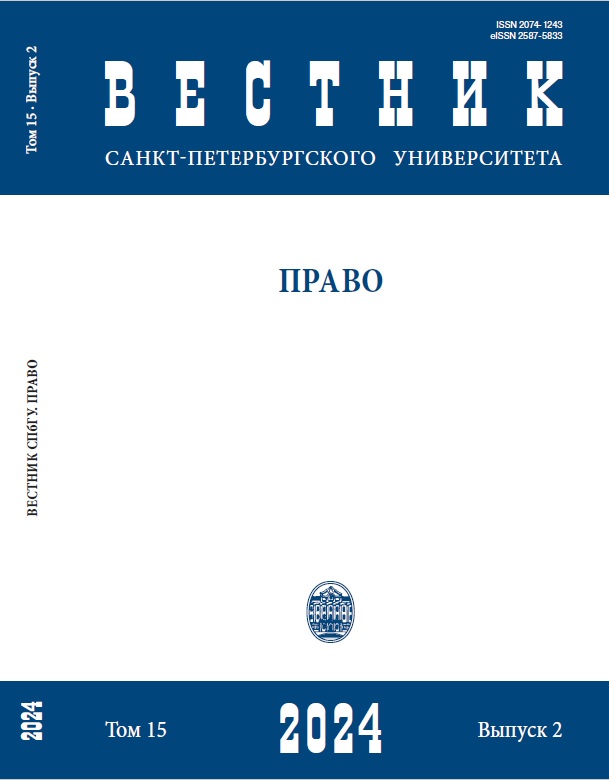The Monopoly of Economic Justice: Judges versus arbitrators
DOI:
https://doi.org/10.21638/spbu14.2024.203Abstract
The article explores the relationships between state economic courts represented by judges and arbitration courts as a manifestation of the conflict between public and private justice. The consequences of changes in state policy after the arbitration reform of 2015–2017 are discussed. Firstly, through the lens of Bourdieu’s perspective, the key factors influencing the emergence of a negative attitude in the judicial environment towards private justice are analyzed. Secondly, the establishment of the specialization of a particular subgroup of judges
from the appellate instance of arbitration courts, who year after year deal with cases related to arbitration courts, is examined. During the empirical part of the research and interviews with judges from the appellate instances, it was found that their primary reference point, in
addition to the law and personal convictions, is the orientation towards the higher court — the Supreme Court of the Russian Federation, where one judge largely determines the courts’ policy towards arbitration courts. Judges exhibit normative isomorphism, as similar experiences
and practices prompt them to adopt similar strategies to protect their field from private justice. The article is the result of qualitative research based on interviews. Based on the assumption of the homogenization of the judicial sphere and judges’ defensive tactics to protect their field from external, private courts using institutional analysis and Bourdieu’s theories of fields and capital, the conclusion is drawn that judges of state courts tend to accumulate
symbolic capital. This allows them to act as the only possible interpreters of legal norms — monopolists of justice. Through the lens of isomorphism theory, the conclusion is drawn that state courts implement the practice of coercive isomorphism, which has no other goals except forcing private courts to mimic state courts.
Keywords:
arbitration tribunals, economic justice, monopoly on justice, arbitration community of judges, arbitration reform., arbitration, arbitration courts, economic justice, monopoly on justice, arbitration community of judges, arbitration reform
Downloads
References
Downloads
Published
How to Cite
Issue
Section
License
Articles of "Vestnik of Saint Petersburg University. Law" are open access distributed under the terms of the License Agreement with Saint Petersburg State University, which permits to the authors unrestricted distribution and self-archiving free of charge.






